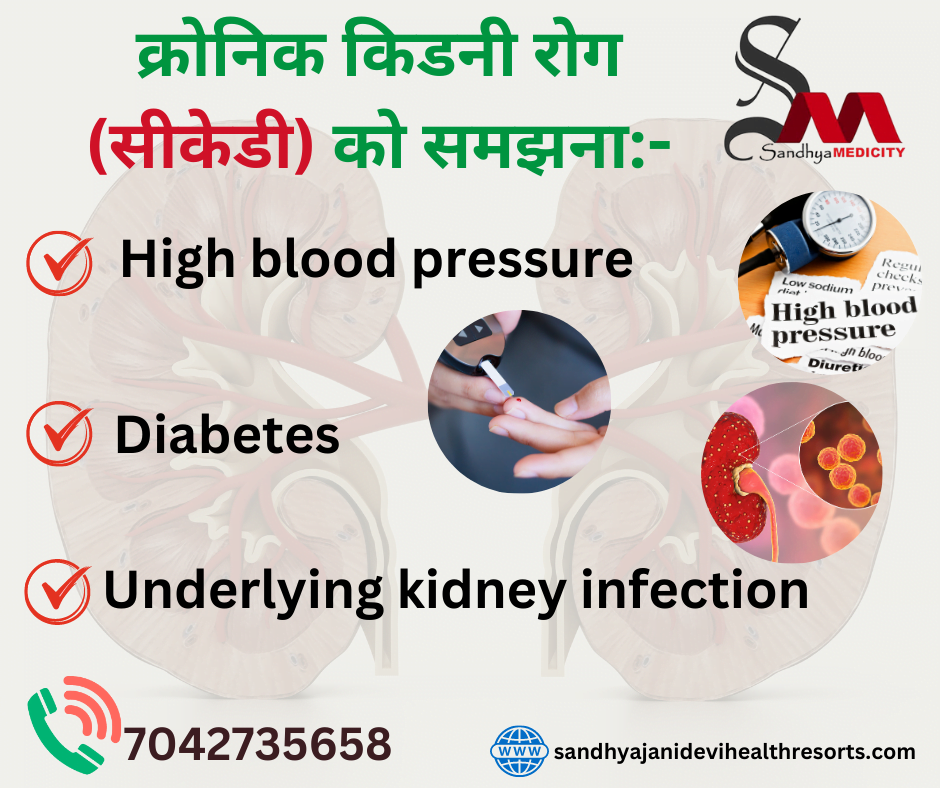How is CKD diagnosed?
CKD Diagnosed Ayurveda Treatment – Today, we’ll be discussing a topic that affects millions of people worldwide: chronic kidney disease, or CKD. We’ll be discussing the important process. Explains diagnosing CKD and the different tests and exams involved. Understanding Chronic Kidney Disease (CKD) Before we get into the diagnosis process, let’s understand what exactly CKD is. CKD is a progressive condition where the kidneys gradually lose their ability to function optimally. This can be caused by a variety of factors, such as high blood pressure, diabetes, or an underlying kidney infection. Now that we’ve covered the basics, let’s move on to the fascinating process of diagnosing CKD.” Medical history and physical exam The journey to CKD diagnosis usually begins with a complete medical history and physical exam. Your doctor will ask about your symptoms, medical conditions, and any relevant family history. This step allows the physician to gather important information that may contribute to the diagnosis. Next, a comprehensive physical examination will be performed to assess your overall health and verify the presence of any specific symptoms related to CKD.” Blood test – CKD Diagnosed Ayurveda Treatment Now, let us move to the laboratory tests which play an important role in the diagnosis of CKD. Blood tests are fundamental to assessing kidney function. These tests measure levels of creatinine and blood urea nitrogen, which indicate waste products that are in your blood. Additionally, glucose and lipid profiles can be analyzed to identify any underlying conditions that may be contributing to CKD.” Urine test – CKD Diagnosed Ayurveda Treatment Host: “In addition to blood tests, urine tests are helpful in diagnosing CKD. A urine sample is collected to assess for the presence of protein and blood in the urine. These tests help doctors determine the level of kidney damage.” allow to perform and establish the existence of conditions such as proteinuria or hematuria.” Imaging tests Using advanced medical technology, imaging tests are employed to gather more information about the structure and shape of the kidney. These tests may include ultrasound, CT scan, or MRI. They can also identify any physical abnormalities or blockages, providing valuable insight. Underlying Causes of CKD.” Kidney biopsy Host: “In complex cases, a kidney biopsy may be recommended. This procedure involves removing a small sample of kidney tissue for microscopic examination. A kidney biopsy allows doctors to determine the nature of the kidney disease and to Allows you to decide on an effective treatment plan. Assessment and diagnosis After analyzing all relevant test results and medical history, your health care professional will evaluate the data and arrive at a comprehensive diagnosis. This diagnosis will classify CKD into stages based on the severity of kidney damage, which will guide the subsequent treatment process. Remember that receiving a CKD diagnosis is not the end of the road; Rather, it is the first step toward managing and potentially improving your condition.” Conclusion:- How CKD Is Diagnosed It is important to consult a health care professional if you suspect you may have CKD or experience any associated symptoms. Early diagnosis allows for more effective treatment and enhances the quality of life for people with CKD.
How is CKD diagnosed? Read More »


